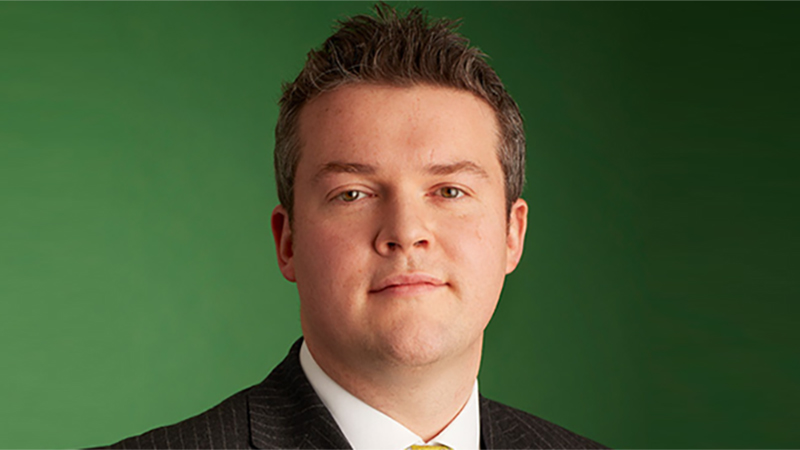Ruffer’s defensive positioning has come back to bite the investment company as equity markets saw a surprise bounce back in July, despite inflation soaring above 9%.
In its first monthly update following the departure of longstanding manager Hamish Baillie, Ruffer Investment Company (Rica) reported sluggish net asset value growth of 0.1%. This was noticeably behind the FTSE All Share, which closed out the month 4.4% higher.
Baillie and Duncan MacInnes (pictured), who is now lead manager, have been prepping for a “dangerous” H2 by boosting the investment company’s exposure to inflation-linked bonds, cash and gold bullion. Exposure to equities was sliced to 25% of the portfolio, the lowest for Ruffer portfolios since 2003.
However, this strategy backfired in July as “risk appetite roared back,” the factsheet highlighted, even as inflation hit 9.1% in the US, prompting the Federal Reserve to pull the trigger on its second consecutive 75 basis points hike.
While Rica’s equity exposure and UK long-dated index-linked bonds contributed 1.1% and 1.2% respectively to performance, this was offset by unconventional protections and gold exposure, which fell 1.6% and 0.1%.
See also: US small caps and tech stocks top performance charts in July
‘The bear market is not over’
Despite last month’s set back, the investment team has doubled down on its bearish views and cut the portfolio’s equity exposure further.
“This bear market is not over, and we believe that we are entering its most dangerous phase. Liquidity is being drained from the financial system,” MacInnes said in the factsheet.
“One of the pushbacks to the view that a move lower in equity markets was likely, was the already extremely bearish investor sentiment and positioning. A low-liquidity summer rally, sucking in those who can’t afford relative underperformance, should see this box ticked.”
Investors are now betting the Fed will abandon its monetary tightening and focus on growth stabilisation, as economic growth forecasts weaken, MacInnes said.
“Interest rate futures now price that the central bank will be cutting interest rates by early next year,” an outcome he thinks is “possible, but not likely”.
“We have been through numerous ‘unprecedented’ events in the last few years. ‘Unprecedented’ amounts of peace-time fiscal stimulus in 2020 and 2021, combined with ‘unprecedented’ monetary policy; but it would be truly unprecedented to slow the economy sufficiently to bring down the highest inflation rate for 40 years with an after-inflation policy rate that never goes positive.
“It would require a much deeper economic slowdown than is implied in 2023 earnings estimates, which have barely budged.”










